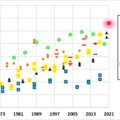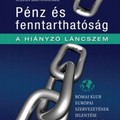A brief glance at automotive industry focused news (e.g. www.just-auto.com) or industry-specific compilations of articles is sufficient to convince readers that the crisis in the automotive sector is not over yet: the global restructuring of the industry continues. The crisis has reinforced and intensified several global trends shaping the evolution of the automotive industry. At the same time, as a consequence of the crisis, some of the basic concepts previously used to describe the global automotive industry may have become untenable.
The erosion of the dominant position of developed economies was sharply intensified by the crisis, both in the field of production and consumption. Some emerging economies have increased their market role with unprecedented speed – not only in production and export, but also in consumption. New actors have entered the global market: rapidly internationalising multinationals from developing economies have entered developing economy markets as exporters and developed country markets as direct investors, establishing or acquiring production facilities and brands.
Another ongoing process further enhanced and intensified by the crisis is the global consolidation of automotive production and the relocation of production activities for cost-cutting reasons. The crisis has strongly transformed the structure of consumer demand: demand for the lower range of the car market has grown rapidly. The other side of the “relocation coin” is a traditional tendency that has been reinforced by the crisis: lead firms are increasingly concentrating on high value-adding activities and unbundling (outsourcing) others.
However some prior conceptions, frequently considered the “basic tenets” of the global automotive industry, were challenged by the crisis. Despite the previous prevalence of nationally-centred recovery policies, the crisis has pushed decision-makers to reconsider their economic policy approaches. It has become evident that government support for national companies is not straightforward, in particular in countries where foreign investors represent the principal employers in a given industry.
Another turn of the tide triggered by the crisis is the transformation of the automotive sector’s business model. Previously the industry was considered the prime example of a producer-driven value chain in which original equipment manufacturers are the lead firms and exercise control over production, the supply chain and own the brand names. In the long run, this value chain integration and coordination model may be transformed into a buyer-driven one, i.e. in a business model where large retailers (instead of producers) specialised in marketing, branding and distribution govern and coordinate value chain activities. Some industries (e.g. the bicycle industry, electronics) have already undergone or begun a similar business model transformation.
The Central and East European automotive cluster has so far been a winner in the ongoing global restructuring processes of the industry. CEE firms have become integrated in global value chains and have benefited from the global rearrangement and consolidation of production activities. However, they must anticipate the prevailing technological and market uncertainties. The entry of new actors and the industry’s shift to a new business model may, in the long run, disrupt the current status quo and jeopardise the value chain position of CEE countries. The outsourcing of manufacturing and related support activities to complex manufacturing service providers could lead to the closure of some leading firm manufacturing facilities in CEE. CEE host economy reliance on labour cost advantages to embed automotive industry investors may prove risky. In contrast, the increased specialisation in and focus on high quality, high value adding activities by leading firms can and should be imitated by CEE local subsidiaries through continuous attempts to perpetuate upgrading.
During the crisis years, foreign investors in CEE countries exerted a stabilizing effect on their host economies. Despite this initial outcome, MNC behaviour and their impact on host economies during the crisis years (whether exacerbating or mitigating the adverse effects of the crisis) have been influenced by host economy economic, social and institutional factors and the economic policy adopted by host governments.
(A longer version of this article will appear in the Institute of World Economics’ Report on World Economics)
Andrea Szalavetz







